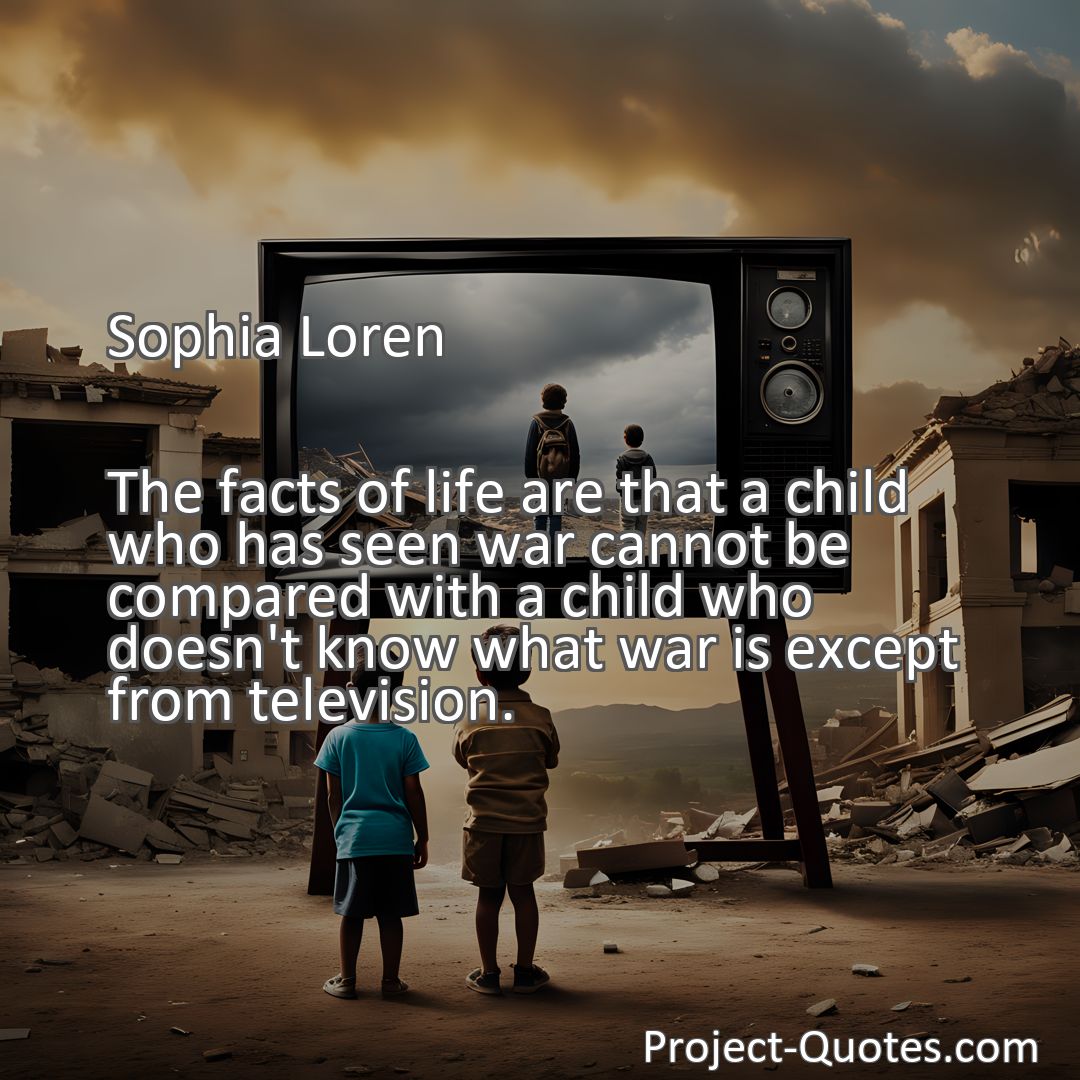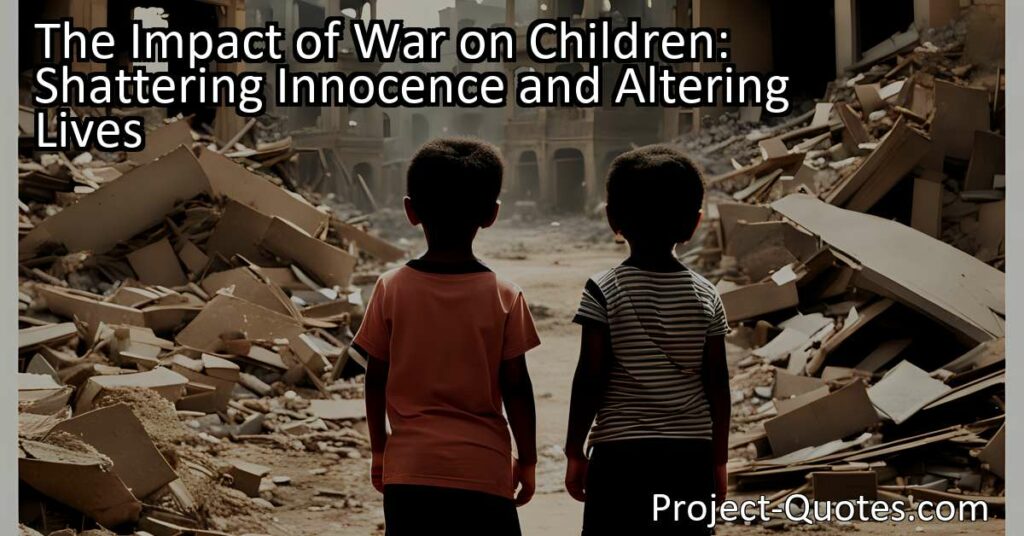The facts of life are that a child who has seen war cannot be compared with a child who doesn’t know what war is except from television.
Sophia Loren
The Impact of War on Children: Shattering Innocence and Altering LivesWhen children experience the horrors of war firsthand, their perception of the world is forever changed. It shatters their innocence and leaves lasting scars on their lives. However, those who only learn about war through television are shielded from its true devastating effects, creating a false understanding. It is important to recognize and address the profound impact of war on children, while also working towards creating a better future for all children, free from the horrors of conflict.
Table of Contents
- 1 The facts of life are that a child who has seen war cannot be compared with a child who doesn’t know what war is except from television.
- 2 Sophia Loren
- 3 Meaning of Quote – The facts of life are that a child who has seen war cannot be compared with a child who doesn’t know what war is except from television.
- 4 Freely Shareable Quote Image
- 5 Related
Meaning of Quote – The facts of life are that a child who has seen war cannot be compared with a child who doesn’t know what war is except from television.
War is a harsh reality that has an indelible impact on the lives of those who experience it firsthand. It shatters the innocence of childhood and leaves a lasting impression that cannot be replicated through mere depictions on television. The quote highlights the stark contrast between a child who has witnessed the horrors of war and a child who only knows it through a screen. In this context, it becomes evident that the realities of war can never truly be conveyed through media alone.
When a child is exposed to the true grimness of war, their perception of the world is forever altered. The sights, sounds, and experiences of conflict etch themselves into the very fabric of their being. These children bear witness to violence, destruction, and loss on a scale that is almost unimaginable. Their once carefree and innocent outlook on life is abruptly transformed by the harshness of the real world.
In stark contrast, a child who learns about war solely through television is shielded from the horrors of armed conflict to a certain extent. While this child may see images of wars, they often lack the depth and gravity that is experienced by those directly affected. Television provides a detached and sanitized view of war, distilling its complexities into digestible soundbites and brief news segments. This can create a false understanding of the true human cost of war.
Children who have not experienced war have the luxury of an uninterrupted childhood, sheltered from the grim realities that plague so many others. They can focus on education, play, and the pursuit of personal growth without the added burden of traumatic memories. Their understanding of the world is shaped by a relatively peaceful and stable environment, and they are able to maintain a certain level of innocence and naivety.
On the other hand, children who have witnessed war are forced to grow up far too quickly. They have firsthand knowledge of the devastating consequences of conflict – the loss of loved ones, the displacement of families, and the destruction of homes and communities. These experiences imprint themselves on their psyche, leaving lasting scars and altering their perception of life. Their sense of security is inexorably shattered, often leading to lifelong psychological and emotional consequences.
Moreover, the impact of war on a child’s development cannot be understated. The stress, fear, and trauma associated with living in a war-torn environment can seriously hinder a child’s cognitive, emotional, and social growth. The constant exposure to violence and instability disrupts their ability to form healthy relationships, concentrate in school, and process emotions. The effects of war reverberate long after the conflict itself has ended, leaving a lasting impact on these young lives.
It is important for those who have not experienced war to acknowledge the stark disparities between their own lived experiences and those of children who have directly witnessed conflict. Empathy and understanding are crucial in bridging this divide and fostering a sense of compassion towards these young survivors. By recognizing the profound differences in their respective realities, we can begin to appreciate just how much war shapes the lives and futures of countless children.
Furthermore, it is imperative that efforts are made, both on a local and global scale, to alleviate the suffering of children affected by war. Providing psychological support, access to education and healthcare, and safe spaces for healing and growth are all essential in helping these children rebuild their lives. Organizations and initiatives dedicated to the welfare of children in war zones play a vital role in mitigating the long-term effects of conflict and offering a glimmer of hope amid the darkness.
In conclusion, the quote reminds us of the immense divide between the experiences of children who have seen war and those who have only glimpsed it through media outlets. The impact of war on a child’s life is immeasurable, shattering the innocence and carefree nature of childhood. It is our collective responsibility to acknowledge this divide, show empathy, and work towards creating a better future for all children, free from the horrors of war.
I hope this quote inspired image brings you hope and peace. Share it with someone who needs it today!


